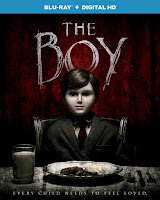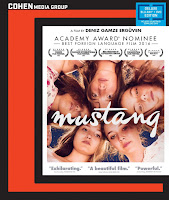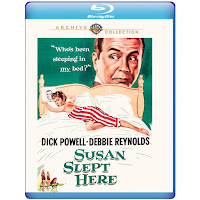the traveler's resource guide to festivals & films
a FestivalTravelNetwork.com site
part of Insider Media llc.
Reviews
Theater Reviews—“City Stories,” “Anna Akhmatova: The Heart Is Not Made of Stone”
- Details
- Parent Category: Film and the Arts
- Category: Reviews
- Published on Thursday, 19 May 2016 18:18
- Written by Kevin Filipski
City Stories
Written and directed by James Phillips; music composed/performed by Rosabella Gregory
Performances through May 29, 2016
Anna Akhmatova: The Heart Is Not Made of Stone
Written by Eve Wolf; directed by Donald T. Sanders
Performances through May 1, 2016
|
Daphne Alexander and Tom Gordon in City Stories (photo: James Phillips) |
Part of this spring’s edition of Brits Off Broadway at 59 E 59 Theaters—again bringing together an array of new work from across the pond—is City Stories, a smorgasbord of variable one-acts that melds into a pleasing platter evokes the sights, sounds and people of London.
Director James Phillips’s half-dozen playlets are in rotating repertory: the four I saw—Narcissi, about a couple’s lifelong distancing act; Lullaby, a futuristic tale of a city beset by a plague; Great Secret, about a search for the meaning of life; and Occupy, about the countless letters people have written to God, all stored in a cathedral—run from contrived to clever, all accompanied by songwriter Rosabella Gregory’s sprightly piano playing and singing, which comments on, at times even forming the crux of the alternately intimate and adversarial relationships on display.
In the talented cast, Daphne Alexander stands out with her bewitching manner and easy way with Phillips’ cascades of dialogue in Lullaby. Gregory equally transfixing: when singing the Beatles’ “Golden Slumbers” during particularly fraught moments in Lullaby, she brings Phillips’s somewhat forced allegory into sharper focus.
|
Ellen McLaughlin in Anna Akhmatova: The Heart Is Not Made of Stone (photo: Joan Marcus) |
Anna Akhmatova was the brilliant Russian poet whose lifelong struggle against Soviet government officials is encapsulated in Anna Akhmatova: The Heart Is Not Made of Stone, a stimulating multi-media performing piece written by Eve Wolf—who also performs several potent Russian piano works—for her enterprising Ensemble for the Romantic Century.
The ruthless and lethal tactics of the Stalinists are shown—sometimes absurdly, as when two apparatchiks dance together to Dmitri Shostakovich—alongside Akhmatova having an unforgettable evening in conversation with British intellectual Isaiah Berlin and commiserating with artist contemporaries like Sergei Prokofiev. We see how great artists, even when up against intolerant, uncomprehending authorities, continue to create.
And it was remarkable that Soviet artists were able to create such enduring works of art: and the best moments occur when Wolf and fellow musicians—fellow pianist Max Barros, violinist Victoria Wolf Lewis and cellist Andrew Janss—play works by Prokofiev, Shostakovich and Sergei Rachmaninov, briefly transporting her (and us) to a place away from the gulags and secret police, however much that reality informed their very creativity.
Ellen McLaughlin makes a strong-willed yet fragile Anna while Berlin is nicely sketched in by Jeremy Holm; Donald T. Sanders’ effective direction, coupled with David Bengali’s artful projections, Vanessa James’s evocative sets and costumes and Beverly Emmons’s resourceful lighting, vividly reminds us of art’s ultimate power to triumph over evil.
City Stories
59 E 59 Theatres, 59 East 59th Street, New York, NY
britsoffbroadway.com
Anna Akhmatova: The Heart Is Not Made of Stone
Brooklyn Academy of Music, Fishman Space, Brooklyn, NY
romanticcentury.org
May '16 Digital Week III
- Details
- Parent Category: Film and the Arts
- Category: Reviews
- Published on Tuesday, 17 May 2016 23:15
- Written by Kevin Filipski
(Universal)
(Cohen Film Collection)
(Strand Releasing)
May '16 Digital Week II
- Details
- Parent Category: Film and the Arts
- Category: Reviews
- Published on Tuesday, 10 May 2016 20:50
- Written by Kevin Filipski
Utah Symphony Celebrates 75th Anniversary at Carnegie Hall
- Details
- Parent Category: Film and the Arts
- Category: Reviews
- Published on Wednesday, 04 May 2016 02:51
- Written by Jack Angstreich

Thierry Fischer
On the evening of Friday, April 29th, an excellent concert was given at Carnegie Hall by the fine musicians of the Utah Symphony — which is celebrating it’s 75th anniversary this year — under the assured direction of Thierry Fischer (plus some buzz in the air as the glamorous Mitt Romney could be seen in the audience).
More Articles...
Newsletter Sign Up

























